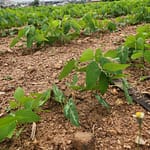The year 2023 witnessed a record exit of multinational companies from Nigeria. From Unilever to Nasco, over 10 companies providing labor in different sectors wound up in the year.
The exit of these international manufacturers is a concerning trend that has implications for the country’s economic growth and employment levels.
The reasons for their departure include challenges faced by local and multinational manufacturers in Nigeria, such as power supply, foreign exchange rate unpredictability, high cost of raw materials, insecurity, and the general high cost of doing business.

In reaction to this development, the President of the Manufacturers Association of Nigeria has predicted more international manufacturing companies may leave Nigeria and site their factories in other countries should power distributors implement tariffs that are not in the interest of manufacturers.
Unilever, GlaxoSmithKline Plc, Sanofi-Aventi Nigeria, Bolt Food, Jumia Food, Equinor, and Procter & Gamble (P&G) .Other companies include Bolt food, Volkswagen, Michelin, ISO Glass, Universal Steel, Universal Rubber, NASCO Fibre, Tower Aluminium, among others.
In this article, we examine some of the reasons given by these companies and experts’ reaction.
Procter & Gamble (P&G): The company operated in Nigeria for 30 years, managing two manufacturing plants in Ibadan, Oyo State, and Agbara, Ogun State. The company behind several iconic brands, including Pampers, Gillette, Ariel, Always, and Oral-B, revealed its intention to shift its business model to focus solely on imports, citing challenges in the markets of Nigeria and Argentina.
GlaxoSmithKline Plc(GSK): The British pharmaceutical corporation has been present in Nigeria for 51 years. When the company first began operations on July 1, 1972, it was known as Beecham Limited. The Nigerian Stock Exchange saw the company’s first trading activity in 1977. The company had its headquarters in Lagos and its manufacturing company in Agbara, Ogun State. GSK declared on August 3 that it was going to shut down after weighing the benefits and drawbacks of moving its pharmaceutical and consumer healthcare product distribution to a third-party business.
GSK In comparison to the same period last year, Nigeria’s half-year sales dropped to N7.75 billion from N14.8 billion, per an ICIR report.
Read also: Non-economic impacts of cyclones in Malawi
Equinor Nigeria Energy Company, spent three decades in the Nigerian energy market, Equinor Nigeria Energy Company (ENEC) is a Norwegian energy corporation, with a 53.85% ownership in oil mining lease (OML) 128, including a 20.21% stake in Agbami field operated by Chevron, withdrew from its operations last month.
Unilever, the company had stated in March that it had to leave Nigeria’s home care and skin cleansing categories due to changes in its operations. The announcement meant that well-known brands that many Nigerians had grown accustomed to, like Omo, Sunlight, and Lux, would no longer be available on store shelves.
The company’s decision to cease operations in Nigeria is not unrelated to growing financial challenges brought on, among other things, by the naira’s ongoing depreciation.
Due to the power outage and the volatility of Nigeria’s foreign exchange rate prior to its recent unification, some people left the nation. He continued by saying that his members’ businesses suffered as a result of manufacturers spending N144 billion on alternative energy sources in 2022
Mayor Biscuit Company Limited(MABISCO), Is an indigenous biscuits company in Ogun State, Nigeria, shut down this year.
In just seven years since its establishment in 2016, MABISCO—located in Ogun State’s Agbara Industrial Zone—opened more than 300 established distributors across the country. The plant, which uses cutting-edge technologies to produce biscuits—has a total capacity of 3.5 tonnes per hour and can access the Shell LNG Gas terminal. Its packing machines can produce 350 packs per minute.
Gross Domestic Product(GDP) and Inflation
The report for gross domestic product (gdp) Q4 2023, which is 95.66% shows a significant decline to Q3 2023 which stood at 94.52%. in the non-oil sector contributing to the GDP in Nigeria.
Watch LIDA NETWORK on YouTube
UNEMPLOYMENT
Source:NBS, Chat: Lida network
According to the Nigeria Bureau of Statistics (NBS), the rate of unemployment in Q4 2022, which stood at 5.3%, shows a decline as against Q1 2023, which is at 4.1%, and an increase in the rate of unemployment in Q2 2023, which is at 4.2%. This increase in the rate of unemployment could also be a result of international manufacturing companies exiting the country, as a lot of people will lose their jobs and be forced back into the unemployment world.












